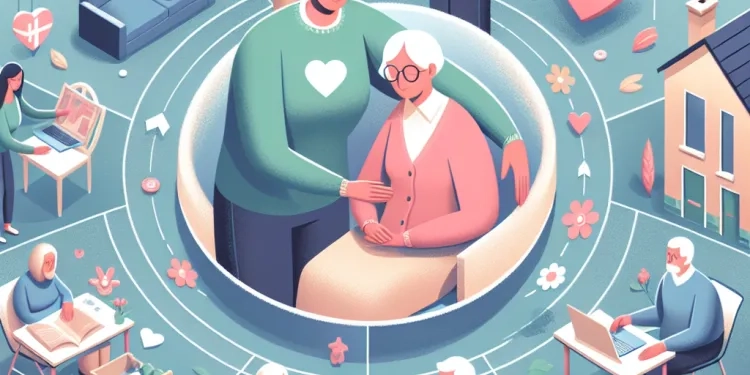
Find Help
More Items From Ergsy search
-
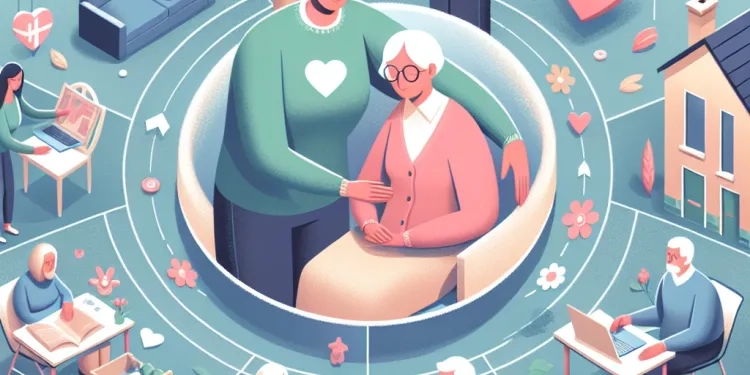
How can families support a loved one with Alzheimer's?
Relevance: 100%
-

How can I support a loved one with dementia?
Relevance: 53%
-

What emotional support is available for carers of Alzheimer's patients?
Relevance: 51%
-

What is Alzheimer's disease?
Relevance: 47%
-

What types of support are available for carers of Alzheimer's patients?
Relevance: 46%
-
How can someone help a loved one with an eating disorder?
Relevance: 46%
-

How can support groups benefit carers of Alzheimer's patients?
Relevance: 45%
-

What support is available for carers of Alzheimer's patients?
Relevance: 44%
-

Are there financial support programs for carers of Alzheimer's patients?
Relevance: 43%
-

Are there specific apps or tools to help carers of Alzheimer's patients?
Relevance: 43%
-

How common is Alzheimer's disease in the UK?
Relevance: 41%
-

How can families support a member with autism?
Relevance: 40%
-

Mental Health Support for Families: Resources and Guidance
Relevance: 40%
-

What are the stages of Alzheimer's disease?
Relevance: 39%
-

How does Alzheimer's affect daily life?
Relevance: 39%
-

How can carers plan for future stages of Alzheimer's disease?
Relevance: 39%
-

What online communities exist for carers of people with Alzheimer's?
Relevance: 39%
-

What steps can I take to help an elderly loved one avoid scams?
Relevance: 39%
-
How can I support a loved one with dementia?
Relevance: 38%
-
How can I support a loved one with dementia?
Relevance: 38%
-
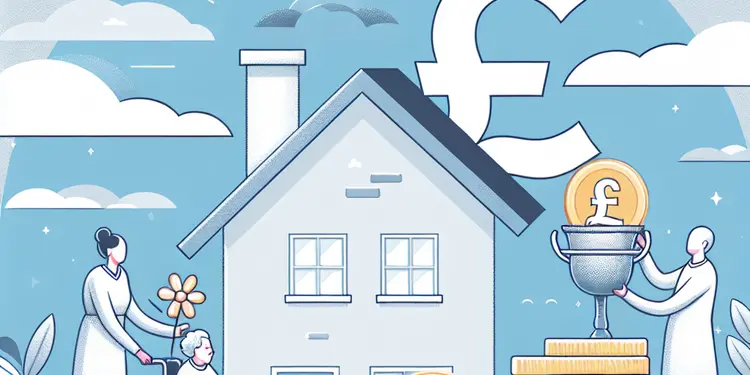
What legal resources are available for carers of Alzheimer's patients?
Relevance: 38%
-

What treatments are available for Alzheimer's disease?
Relevance: 38%
-

Who is at risk of developing Alzheimer's disease?
Relevance: 38%
-
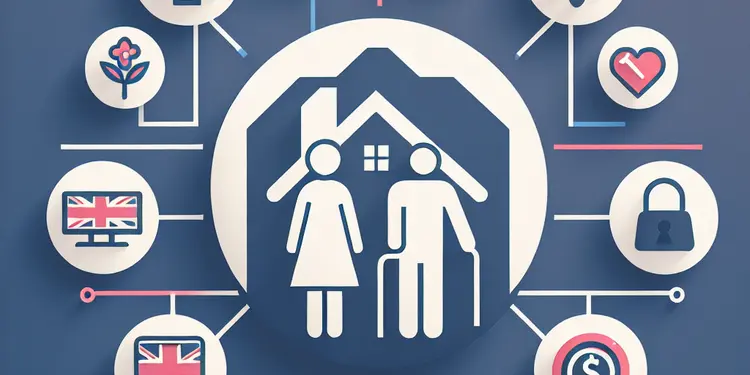
Can carers of Alzheimer's patients access in-home healthcare services?
Relevance: 37%
-
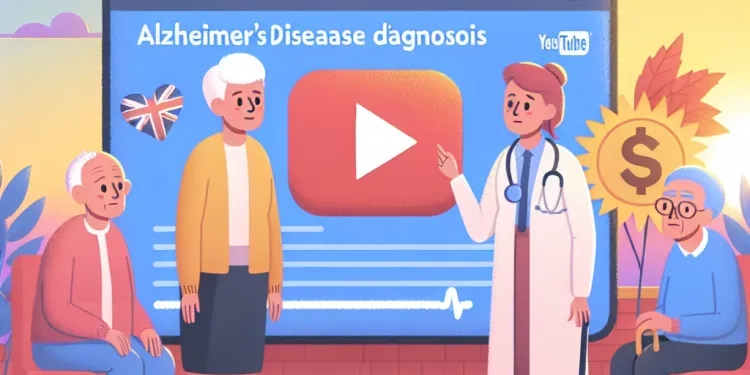
How is Alzheimer's disease diagnosed?
Relevance: 37%
-

Can technology aid in the care of Alzheimer's patients?
Relevance: 37%
-
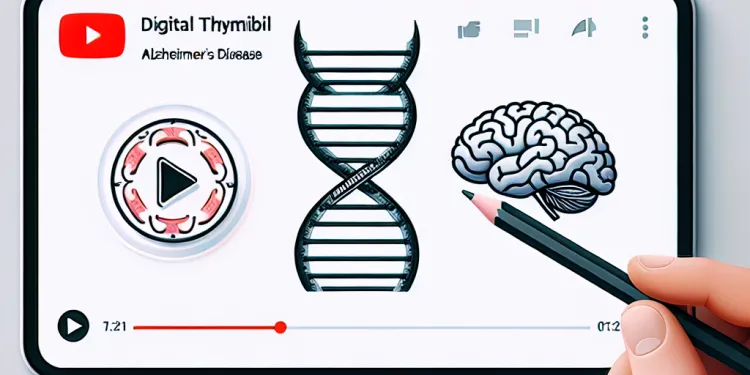
What role does genetics play in Alzheimer's disease?
Relevance: 37%
-

What government assistance is available for carers of Alzheimer's patients?
Relevance: 37%
-

How important is self-care for carers of Alzheimer's patients?
Relevance: 37%
-
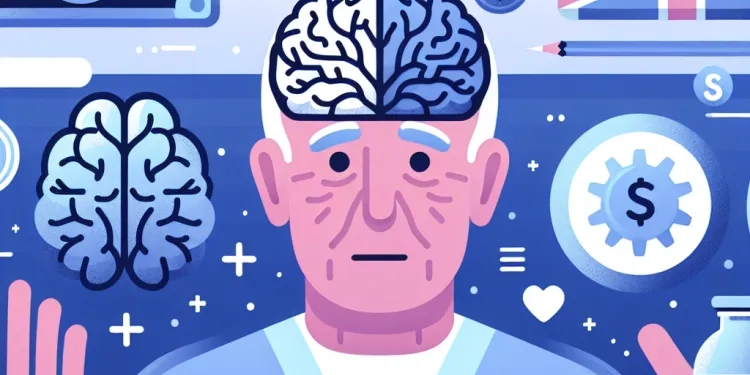
What are the symptoms of Alzheimer's disease?
Relevance: 37%
-

What support is available for families of individuals with PIMD?
Relevance: 36%
-

Where can I find information about Alzheimer's disease for carers?
Relevance: 36%
-

What causes Alzheimer's disease?
Relevance: 36%
-

Mental Health Support Resources for Families
Relevance: 36%
-

Can Alzheimer's disease be prevented?
Relevance: 35%
-

Mental Health Support for Families: Resources and Strategies
Relevance: 34%
-

Can I bury a loved on on my own private property?
Relevance: 33%
-
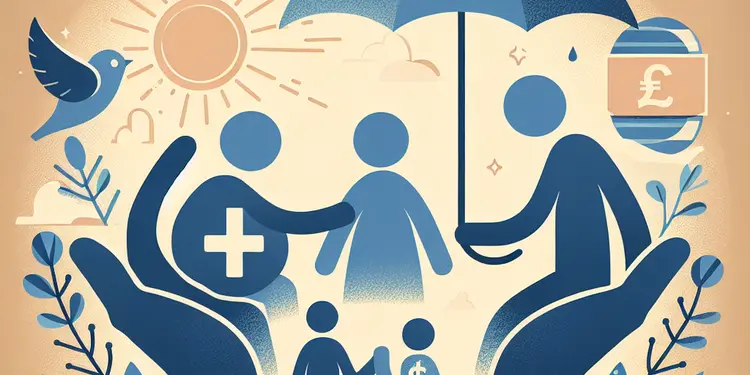
What role do family and friends play in the recovery process?
Relevance: 33%
-
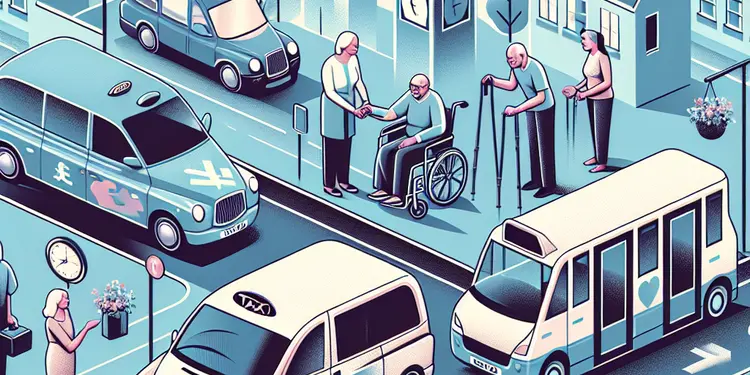
What transportation services are available for Alzheimer's patients and their carers?
Relevance: 32%
-

Mental Health Support for Families: Resources and Helplines
Relevance: 31%
Supporting a Loved One with Alzheimer's
Understanding Alzheimer's Disease
Alzheimer's disease is a progressive neurological disorder that affects memory, thinking, and behavior. Understanding the nature of the disease is crucial for providing meaningful support. Families in the United Kingdom can access resources and detailed information through organizations like Alzheimer's Society and NHS to learn more about the condition and its progression.
Creating a Safe Environment
Ensuring the safety of loved ones with Alzheimer's is paramount. Consider making home modifications to reduce risks and enhance safety. Install locks on cabinets containing harmful substances, ensure adequate lighting, and remove tripping hazards. Additionally, identifying a safe wandering zone and using technology to monitor movement can provide peace of mind.
Establishing a Routine
Routines can offer a sense of security and stability for individuals with Alzheimer's. Establishing structured daily activities helps reduce confusion and anxiety. Incorporate regular meal times, physical activities, and rest periods. Involving the loved one in simple household tasks can also provide a sense of purpose and belonging.
Promoting Social Engagement
Social interaction is vital for emotional well-being. Encourage visits from friends and relatives and attend local community events. Many communities in the UK provide Alzheimer-friendly activities, such as memory cafes and support groups, which offer opportunities for social engagement.
Accessing Professional Support
Caring for someone with Alzheimer's can be demanding and may require professional assistance. Consulting with healthcare providers for advice on medical care options is crucial. Consider seeking help from professional caregivers or respite care services available in the UK to give family caregivers a well-deserved break.
Practicing Self-Care for Caregivers
Family members supporting a loved one with Alzheimer's should also focus on their own well-being. Balancing caregiving duties with personal needs is essential to avoid burnout. Taking breaks, engaging in enjoyable activities, and seeking support from local caregiver support groups can help maintain physical and mental health.
Planning for the Future
It's essential to plan for the future needs of the loved one with Alzheimer's. Discuss and create legal and financial plans, ensuring that the individual's wishes are respected. In the UK, organizations like Age UK offer advice on legal issues, and consulting with a solicitor can provide guidance on creating lasting power of attorney.
Supporting a Loved One with Alzheimer's
Understanding Alzheimer's Disease
Alzheimer's disease is an illness that slowly changes how a person remembers, thinks, and acts. It is important to learn about this disease to help loved ones. In the UK, you can find information and help from groups like Alzheimer's Society and the NHS. They can teach you more about Alzheimer's and how it affects people over time.
Creating a Safe Environment
Keeping loved ones with Alzheimer's safe is very important. Make your home safer by locking up things that might be dangerous and making sure there is enough light. Remove anything that might cause trips and falls. It can also help to set up a safe area for walking and using technology to keep an eye on their movements.
Establishing a Routine
Having a daily routine can help people with Alzheimer's feel safe and calm. Doing the same things at the same times every day, like eating meals and going for walks, can lessen confusion and worry. Letting your loved one help with small tasks around the house can make them feel useful and happy.
Promoting Social Engagement
Spending time with others is important for feeling good inside. Invite family and friends to visit and join activities in the community. Many places in the UK have special events for people with Alzheimer's, like memory cafes and support groups. These are good ways to meet people and have fun.
Accessing Professional Support
Taking care of someone with Alzheimer's can be hard, and sometimes you may need help. Talk to doctors or nurses to learn about medical choices. You might also want to get help from professional caregivers or make use of respite care services in the UK. This can give family caregivers a much-needed break.
Practicing Self-Care for Caregivers
If you are taking care of someone with Alzheimer's, remember to look after yourself too. It is important to find a balance between caring for your loved one and caring for yourself. Take breaks, do things you enjoy, and join caregiver support groups in your community to stay healthy and happy.
Planning for the Future
Think about what your loved one with Alzheimer's will need in the future. Talk together about legal and money matters to make sure their wishes are known. In the UK, organizations like Age UK can help with advice on legal questions. Also, talking to a lawyer can help with setting up a lasting power of attorney to make decisions for the future.
Frequently Asked Questions
What are the first steps to take after a loved one is diagnosed with Alzheimer's?
After a diagnosis, it's important to learn as much as you can about the condition, seek support from healthcare professionals, and discuss care preferences with your loved one while they can express their wishes.
How can I communicate effectively with someone who has Alzheimer's?
Use simple words and sentences, speak slowly and clearly, maintain eye contact, and be patient. Non-verbal communication, like facial expressions and body language, can also be helpful.
Are there support groups in the UK for families of Alzheimer's patients?
Yes, there are many support groups, both online and in-person. Organisations such as the Alzheimer’s Society offer support services across the UK.
What can be done to manage daily routines for a person with Alzheimer's?
Establish a consistent daily routine to provide structure and reduce stress. Break tasks into simple steps and focus on one thing at a time.
How can I ensure the safety of my loved one with Alzheimer's in the home?
Install locks or safety latches on cabinets and doors, remove tripping hazards, ensure good lighting, and consider an emergency response system if necessary.
What financial and legal plans should be considered?
Set up a Lasting Power of Attorney for health and financial decisions, review any wills, and explore benefits like Attendance Allowance or Carer's Allowance.
How can we support a loved one’s nutrition and hydration?
Encourage a balanced diet, offer finger foods if using cutlery is difficult, and ensure they drink enough fluids to stay hydrated.
What is respite care and how can it benefit families?
Respite care provides temporary relief for primary carers, allowing them time off while ensuring their loved one continues to receive care. It's essential for carer well-being.
How can I help a loved one with Alzheimer's maintain social connections?
Organize regular social activities that they enjoy, involve them in family gatherings, and explore community groups designed for people with dementia.
What are some common behavioural changes in Alzheimer's patients and how should we respond?
Alzheimer’s can lead to agitation, confusion, and mood swings. Respond with empathy, avoid arguing, and try to redirect their attention to a calming activity.
How can music therapy assist someone with Alzheimer's?
Music therapy can evoke memories, improve mood, and stimulate cognitive abilities. Engaging in singing or listening to familiar music can be particularly beneficial.
What role do physical activities play in the life of someone with Alzheimer's?
Regular physical activity can improve mood, physical health, and sleep. Activities like walking, gardening, or tailored exercise classes are recommended.
How can I help manage an Alzheimer's patient's experiences with sundowning?
Establish a calm, well-lit environment during evening hours, keep activities during this time simple, and reduce caffeine and sugar intake.
What resources are available for learning more about Alzheimer's in the UK?
The Alzheimer’s Society, NHS website, and local dementia support services provide extensive information and resources.
What type of professional care options are available for Alzheimer's patients in the UK?
Options include in-home care, day care centers, residential care homes, and nursing homes, depending on the level of care needed.
What to Do When Someone You Love Has Alzheimer's
When someone you care about is told they have Alzheimer's, it can be hard. Here are some easy steps to help:
- Learn About Alzheimer's: Find simple books or videos. This helps you understand what will happen.
- Talk to a Doctor: Ask the doctor or nurse about what to expect. They can help with medicine and care tips.
- Ask for Help: Talk with family and friends. They can support you and the person who is sick.
- Plan for the Future: Think about money, health, and care. It helps to know what is needed later.
- Stay Patient and Kind: Remember to be patient. Alzheimer's can be confusing, but kindness helps.
Some tools that might help are:
- Notebook: Write down things you learn and questions you have.
- Calendar: Mark dates for doctor's visits or important events.
- Buddy System: Have a friend or family member you can call for help or advice.
When you find out about an illness, it's good to learn as much as you can about it. Talk to doctors and nurses for help. Speak with your family or friends about what care is needed and how your loved one wants to be cared for.
How can I talk well with someone who has Alzheimer's?
Talking to someone with Alzheimer's can be hard. Here are some easy tips to help:
- Be patient: Take your time. Speak slowly and clearly.
- Use simple words: Use easy words and short sentences.
- Ask yes or no questions: Ask questions that can be answered with "yes" or "no".
- Listen carefully: Give time for the person to understand and answer.
- Be kind and calm: Smile and stay relaxed.
- Use pictures: Show photos or objects to help explain.
Remember, it's okay if you need help. You can ask a caregiver or look for support groups. They can give good advice.
Use easy words and short sentences. Talk slowly and clearly. Look at the person when you talk to them. Be patient and wait for them to understand. You can also use your face and hands to help show what you mean.
Can families of people with Alzheimer's get help in the UK?
Yes, families can get help. There are groups in the UK that support families who have someone with Alzheimer's. These groups can help you feel better and share tips.
Here are some things you can try:
- Join a group to talk with other families.
- Learn more about Alzheimer's through workshops.
- Use online forums to ask questions and share stories.
Remember, you are not alone, and there are people who want to help.
Yes, there are lots of places where people can get help. You can find help on the internet or by meeting people face-to-face. The Alzheimer’s Society is a group in the UK that helps people with services for support.
How can we help someone with Alzheimer's follow a daily routine?
Here are some tips to make daily routines easier for someone with Alzheimer's:
- Make a schedule: Have a plan for what to do each day. Use pictures or a colorful chart to show the plan.
- Keep it simple: Do one thing at a time. Use easy words and short sentences.
- Use reminders: Set alarms or use a calendar to help remember things.
- Be patient: Be calm and give extra time to finish tasks.
- Stay consistent: Try to do things at the same time every day. This helps make it easier to remember.
- Help with tools: Use tools like a whiteboard or sticky notes to help with remembering.
These tips can help make each day go smoother for someone with Alzheimer's.
Have the same routine every day. This helps you feel calm and know what to expect. Take big tasks and make them into smaller, easy steps. Do one thing at a time.
How can I keep my loved one with Alzheimer's safe at home?
Alzheimer's is an illness that can make it hard for people to remember things and take care of themselves.
Here are some tips to keep your loved one safe at home:
- Remove anything they might trip over, like loose rugs or cords.
- Lock away medicines and cleaning stuff they shouldn't touch.
- Keep emergency numbers near the phone or on the fridge.
- Add safety bars in the bathroom to help them get in and out of the shower.
- Use easy-to-read signs in the house to show where things are.
Supporting tools can help too:
- Use timers or alarms to remind them about important things like meals or medication.
- Get a calendar to keep track of appointments and visits.
Always check on your loved one to make sure they are safe and happy.
Put locks or safety latches on cabinets and doors. Take away things you can trip over. Make sure the lights are bright. You might want a special system to call for help in an emergency.
What money and law plans should we think about?
Make a plan for someone to help you make choices about your health and money. Look at any wills you have. Find out about getting extra help, like money from Attendance Allowance or Carer's Allowance.
How can we help someone we care about with food and drink?
Here are some ways to help:
- Give them healthy foods like fruits and vegetables.
- Make sure they drink enough water every day.
- Help them eat their meals slowly and enjoy each bite.
- Ask them what their favorite foods are and try to include them in meals.
- Use a colorful plate to make food look fun.
Some tools that can help are:
- A special cup with a lid to help with drinking.
- A fork and spoon with big handles for easy holding.
- An eating mat to keep the table clean.
We can also talk to a doctor or dietitian for more ideas.
Make sure to eat different healthy foods. Try finger foods if using forks or spoons is hard. Drink enough water and other liquids to stay healthy.
What is respite care and how can it help families?
Respite care is when someone helps look after a person who is sick or needs extra care. This gives the main caregiver, like a family member, a little break.
Here’s how respite care can help:
- Rest for families: Families can relax and have a break.
- Time for other things: Families can do things they enjoy or need to do.
- Better care for everyone: When caregivers rest, they can take better care of their loved ones.
If you want to learn more, you can:
- Talk to a social worker to get help.
- Use apps that help organize caregiving tasks.
- Join a local support group for advice and support.
Respite care is a way to help carers take a break. It means someone else looks after the person they care for. This helps carers rest and feel better.
How can I help someone I care about with Alzheimer's stay connected with friends?
Here are some simple ways to help:
- Plan short visits with family and friends.
- Do fun activities together, like looking at photos or listening to music.
- Use video calls to see each other if you can't be together.
- Try simple games or puzzles that they enjoy.
- Take short walks outside together.
- Keep a list of family and friends and talk about them often.
- Be patient and listen carefully to what they say.
Remember, staying connected is important and can make them happy.
Plan fun social things they like to do. Invite them to family get-togethers. Look for local clubs for people with memory problems.
What changes happen in people with Alzheimer's and how can we help?
People with Alzheimer's can feel upset and confused. They might be moody too. Be kind to them. Don't argue. Help them do something calm, like listening to music or drawing.
How does music help people with Alzheimer's?
Music can make people feel better. For people with Alzheimer's, music can help in many ways:
- Remembering: Music can help people remember things from the past.
- Feelings: Listening to music can make people feel happy and calm.
- Talking: Singing can help people talk and express themselves.
Try these tips to use music therapy:
- Play songs they enjoyed in the past.
- Sing along together.
- Use simple instruments like shakers.
Tools that can help:
- Music players with easy buttons.
- Playlists of favorite songs.
Music can help us remember things, feel happier, and think better. Singing songs or listening to music we know can be really helpful.
How do exercises help someone with Alzheimer's?
Exercise is good for people who have Alzheimer's. It can help them stay strong and healthy. Exercise can also make them feel happy and calm.
People with Alzheimer's might enjoy walking, dancing, or doing simple exercises. It's important to do activities that are fun and safe.
Using reminders, like notes or alarms, can help remember to exercise. Having a friend or family member join can make it more enjoyable.
You can use videos or apps that show simple exercises. These can be helpful tools to learn how to move and stay active.
Doing things like walking, gardening, or special exercise classes can make us feel happier, help our bodies stay strong, and make it easier to sleep at night.
If it’s hard to read, you can:
- Ask someone to read it with you.
- Use tools that read text out loud.
- Take breaks when you need.
How can I help someone with Alzheimer's feel better at the end of the day?
People with Alzheimer's can feel upset or confused when the sun sets. Here are some ways to help them feel better:
- Keep the lights bright as it gets dark outside.
- Have a calm and quiet time before bed, like reading a nice story.
- Play soothing music to help them relax.
- Encourage a simple evening routine so they know what to expect.
- Ask the person to do easy and enjoyable activities together.
These can help make the evening easier. Using tools like noise machines or night lights can also help.
Create a calm and bright place in the evening. Do easy activities and don't have too much caffeine or sugar.
How can I learn more about Alzheimer's in the UK?
If you want to learn about Alzheimer's, here are some places that can help:
- Alzheimer's Society: This group has easy guides and a help phone line.
- NHS Website: The NHS site has information that is simple to understand.
- Books and Videos: Try children’s books or videos that explain Alzheimer’s simply.
It can also help to ask a family member or friend to read with you. They can help you understand new words.
You can find lots of helpful information from places like the Alzheimer's Society, the NHS website, and your local dementia support services.
What help can people with Alzheimer's get from professionals in the UK?
Here are some ways people with Alzheimer's can get help:
- Doctors and Nurses: They look after health and give medicine.
- Care Homes: Places where people live and get care every day.
- Home Helpers: People who come to the house to help with daily tasks.
- Support Groups: Meetings where people talk and share feelings.
It can be helpful to use reminders, like sticky notes or phone alarms, to keep on track with daily tasks.
You can get help in different places. You can choose:
- Help at home
- A day care center
- A care home
- A nursing home
Pick one that gives the right care you need.
Useful Links
This website offers general information and is not a substitute for professional advice.
Always seek guidance from qualified professionals.
If you have any medical concerns or need urgent help, contact a healthcare professional or emergency services immediately.
Some of this content was generated with AI assistance. We’ve done our best to keep it accurate, helpful, and human-friendly.
- Ergsy carfully checks the information in the videos we provide here.
- Videos shown by Youtube after a video has completed, have NOT been reviewed by ERGSY.
- To view, click the arrow in centre of video.
- Most of the videos you find here will have subtitles and/or closed captions available.
- You may need to turn these on, and choose your preferred language.
- Go to the video you'd like to watch.
- If closed captions (CC) are available, settings will be visible on the bottom right of the video player.
- To turn on Captions, click settings .
- To turn off Captions, click settings again.
More Items From Ergsy search
-

How can families support a loved one with Alzheimer's?
Relevance: 100%
-

How can I support a loved one with dementia?
Relevance: 53%
-

What emotional support is available for carers of Alzheimer's patients?
Relevance: 51%
-

What is Alzheimer's disease?
Relevance: 47%
-

What types of support are available for carers of Alzheimer's patients?
Relevance: 46%
-
How can someone help a loved one with an eating disorder?
Relevance: 46%
-

How can support groups benefit carers of Alzheimer's patients?
Relevance: 45%
-

What support is available for carers of Alzheimer's patients?
Relevance: 44%
-

Are there financial support programs for carers of Alzheimer's patients?
Relevance: 43%
-

Are there specific apps or tools to help carers of Alzheimer's patients?
Relevance: 43%
-

How common is Alzheimer's disease in the UK?
Relevance: 41%
-

How can families support a member with autism?
Relevance: 40%
-

Mental Health Support for Families: Resources and Guidance
Relevance: 40%
-

What are the stages of Alzheimer's disease?
Relevance: 39%
-

How does Alzheimer's affect daily life?
Relevance: 39%
-

How can carers plan for future stages of Alzheimer's disease?
Relevance: 39%
-

What online communities exist for carers of people with Alzheimer's?
Relevance: 39%
-

What steps can I take to help an elderly loved one avoid scams?
Relevance: 39%
-
How can I support a loved one with dementia?
Relevance: 38%
-
How can I support a loved one with dementia?
Relevance: 38%
-

What legal resources are available for carers of Alzheimer's patients?
Relevance: 38%
-

What treatments are available for Alzheimer's disease?
Relevance: 38%
-

Who is at risk of developing Alzheimer's disease?
Relevance: 38%
-

Can carers of Alzheimer's patients access in-home healthcare services?
Relevance: 37%
-

How is Alzheimer's disease diagnosed?
Relevance: 37%
-

Can technology aid in the care of Alzheimer's patients?
Relevance: 37%
-

What role does genetics play in Alzheimer's disease?
Relevance: 37%
-

What government assistance is available for carers of Alzheimer's patients?
Relevance: 37%
-

How important is self-care for carers of Alzheimer's patients?
Relevance: 37%
-

What are the symptoms of Alzheimer's disease?
Relevance: 37%
-

What support is available for families of individuals with PIMD?
Relevance: 36%
-

Where can I find information about Alzheimer's disease for carers?
Relevance: 36%
-

What causes Alzheimer's disease?
Relevance: 36%
-

Mental Health Support Resources for Families
Relevance: 36%
-

Can Alzheimer's disease be prevented?
Relevance: 35%
-

Mental Health Support for Families: Resources and Strategies
Relevance: 34%
-

Can I bury a loved on on my own private property?
Relevance: 33%
-

What role do family and friends play in the recovery process?
Relevance: 33%
-

What transportation services are available for Alzheimer's patients and their carers?
Relevance: 32%
-

Mental Health Support for Families: Resources and Helplines
Relevance: 31%


